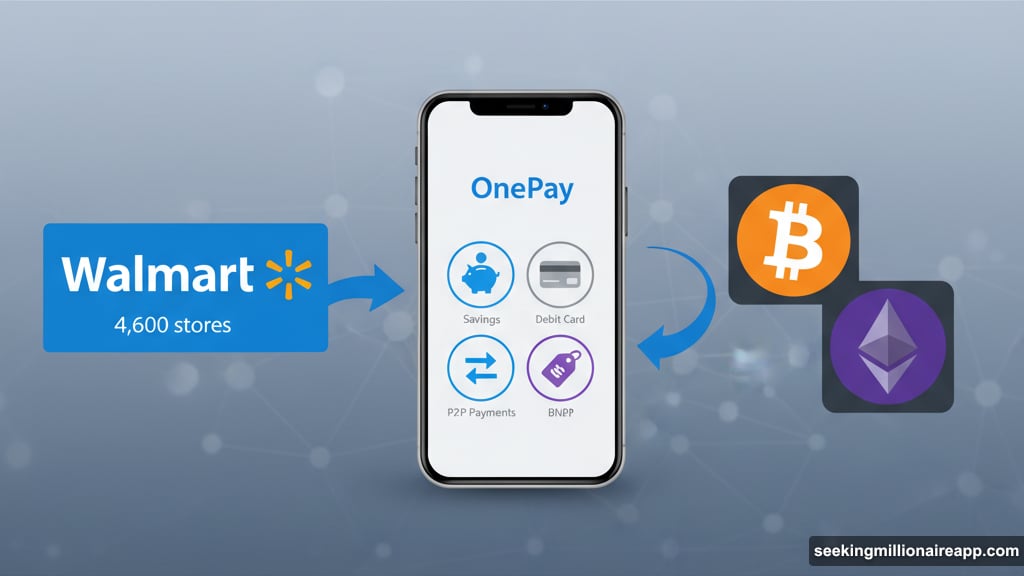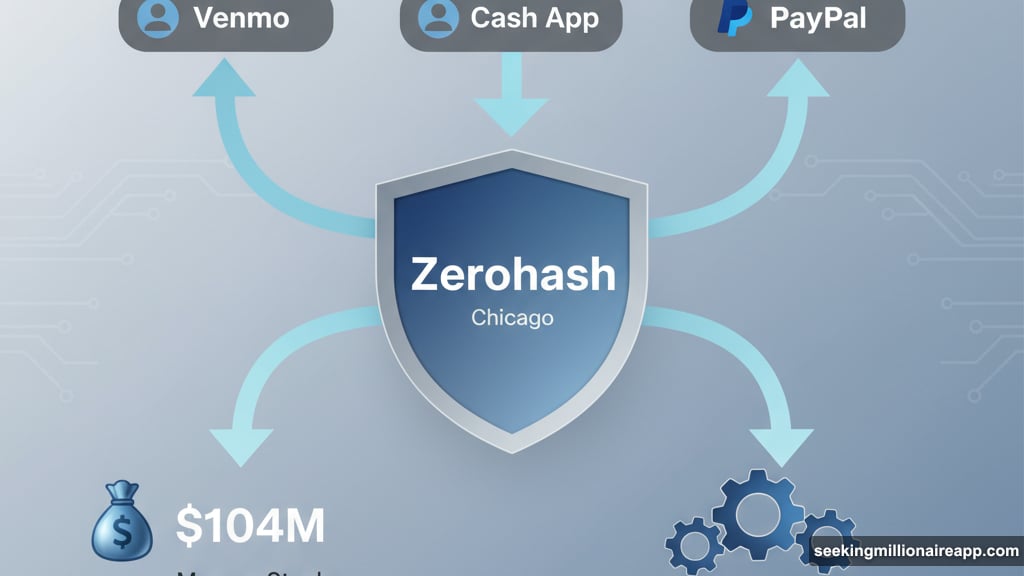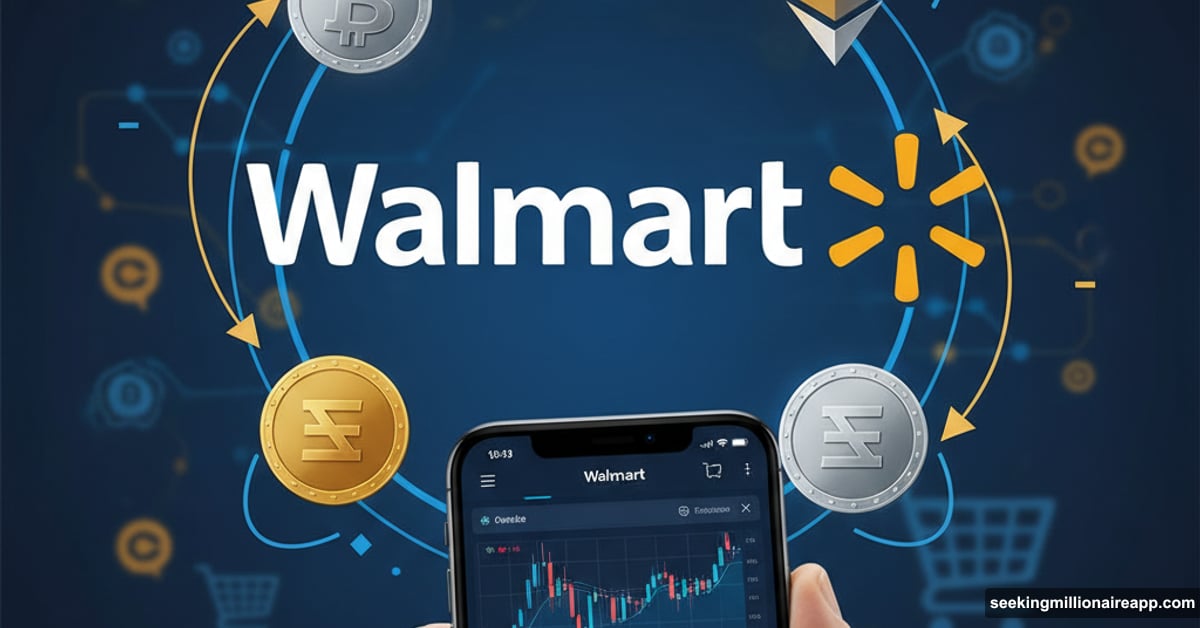Walmart-backed OnePay is jumping into crypto. By year’s end, users can buy, hold, and swap bitcoin and ether directly in the app.
But this isn’t just another fintech adding crypto features. OnePay’s parent company operates nearly 4,600 U.S. stores. That reach could put crypto in the hands of millions who’ve never touched digital assets before.
Plus, they’re partnering with Zerohash to handle the infrastructure. That’s the same firm that just raised $104 million from Morgan Stanley and Interactive Brokers last month. So the backing is serious.
Why OnePay Wants Your Crypto Business
OnePay faces stiff competition. Venmo, Cash App, and PayPal already let Americans trade crypto. But OnePay has something its rivals don’t.
Direct connection to Walmart shoppers. Many OnePay users already visit Walmart stores regularly. They trust the brand for everyday purchases. Adding crypto to the same app where they manage savings and payments feels natural.
Founded in 2021 by Walmart and Ribbit Capital, OnePay bills itself as an “everything app” for digital finance. The platform currently offers high-yield savings accounts, debit and credit cards, peer-to-peer payments, and buy now, pay later options.
Now crypto trading joins that lineup. Users will be able to buy, hold, and convert bitcoin and ether without leaving the app. Zerohash will power the backend infrastructure for trading and custody.
The Bigger Play Behind the Crypto Push
OnePay operates separately from Walmart despite the retail giant’s backing. That’s deliberate. The company targets Americans who feel underserved by traditional banks.
Many of these users already handle multiple financial tasks through one platform. They save money, send payments to friends, and use credit cards all in the same app. Adding crypto trading to that mix makes OnePay more sticky.
Competition in the fintech space is brutal. Cash App and Venmo have massive user bases. PayPal pioneered mainstream crypto access years ago. So OnePay needs differentiation.

Their bet? Walmart’s customer base gives them an edge. Shoppers who trust Walmart for groceries might trust OnePay for financial services. That brand halo effect could drive adoption faster than standalone crypto apps.
Zerohash Brings Serious Infrastructure
Chicago-based Zerohash isn’t a small player. The firm raised $104 million in September from institutional investors including Morgan Stanley and Interactive Brokers.
That capital influx signals serious institutional interest in crypto infrastructure. Banks and fintechs increasingly want to offer crypto services but don’t want to build the tech themselves. Zerohash provides that white-label solution.
For OnePay, partnering with Zerohash means avoiding regulatory headaches. The infrastructure provider handles custody, compliance, and trading rails. OnePay just plugs into that system and brands the experience for users.
This mirrors how most fintechs operate. They don’t build everything from scratch. Instead, they assemble best-in-class third-party services behind a unified interface. Users get seamless experiences without knowing multiple companies power different features.
What This Means for Walmart Shoppers
Most Walmart shoppers probably aren’t crypto natives. They shop for groceries, household goods, and everyday necessities. Crypto trading hasn’t been part of that routine.
OnePay could change that calculation. If users already trust the app for banking and payments, adding crypto feels less risky. The barrier to entry drops when a familiar platform offers the service.
But will people actually use it? That’s the billion-dollar question. Just because OnePay adds crypto trading doesn’t guarantee adoption. Many Americans still view crypto skeptically or don’t understand it.
OnePay will likely need strong education and onboarding to convert curious users into active traders. Simple explanations matter. So does minimizing friction during the first purchase.
The Competition Isn’t Standing Still

Venmo, Cash App, and PayPal won’t just watch OnePay steal market share. These platforms already have millions of users trading crypto regularly.
Cash App particularly dominates among younger users. Venmo integrates seamlessly with social payments. PayPal offers broad merchant acceptance. Each has strengths that OnePay lacks.
But OnePay has Walmart. That’s a unique advantage competitors can’t replicate. Walmart’s physical footprint and trusted brand give OnePay credibility with demographics that might distrust pure-play fintech apps.
The real competition might not be other fintechs. It could be traditional banks finally adding crypto services. Once Bank of America, Chase, or Wells Fargo offer crypto trading, the landscape shifts dramatically.
Timing Couldn’t Be Better
OnePay’s crypto launch comes as institutional adoption accelerates. Bitcoin ETFs attract billions in assets. Major companies add crypto to balance sheets. Regulatory clarity improves gradually.
Consumer interest remains high despite market volatility. Many Americans want crypto exposure but struggle with exchange complexity. Fintechs like OnePay solve that problem by embedding crypto into familiar apps.
The fourth quarter launch timing also matters. Holiday shopping season brings increased Walmart traffic. More store visits could drive OnePay app downloads and account signups. Then crypto features become accessible immediately.
Whether OnePay’s crypto trading takes off depends on execution. Smooth onboarding matters. Low fees matter. Simple interfaces matter. Get those right and the Walmart connection becomes a massive distribution advantage.
Time will tell if mainstream America embraces crypto through their shopping app. But OnePay is betting billions of dollars that they will.
